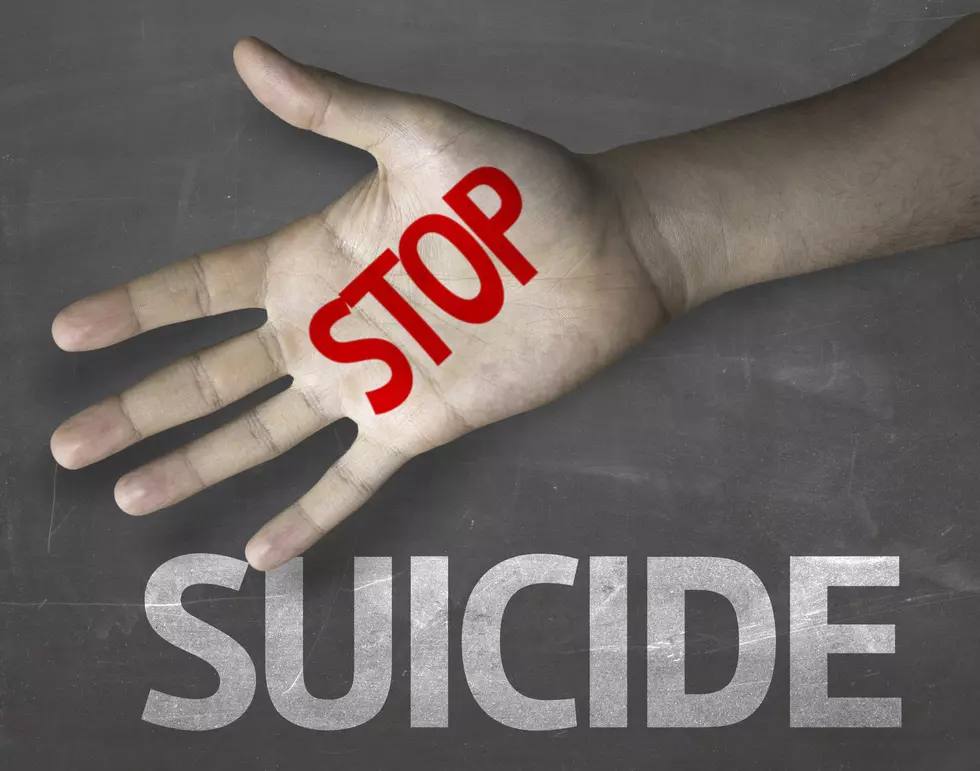
Suicide attempts among teens and adolescents on the rise in NJ
There is an alarming trend of intentional self-harm cases among teens and adolescents in New Jersey, according to The New Jersey Poison Control Center at Rutgers New Jersey Medical School.
Executive and medical director, Dr. Diane Calello said in 2021, the center assisted with over 1,500 suicide attempts among kids ages 10 to 19. But in 2020, that number was 1,200 and in 2019, that number was just shy of 1,100.
She attributed this rise, which she described as a real public health crisis, to a combination of factors in our state.
The stress of COVID-19 and the isolation that has come with it such as remote school are two reasons. Mental health diagnoses are on the rise nationally and suicide attempts and deaths by suicide are on the rise nationally across the board in all age groups, she said.
"Since New Jersey law does not require hospitals and healthcare facilities to report overdoses to the poison control center, our data likely captures only a portion of the self-harm attempts in our youth happening every day," said Calello.
How does the NJ Poison Control Center handle self-harm calls among kids?
The center handles these cases depending on who is making the phone call. Calello said often the call comes from the healthcare professional, caring for a patient who already came to the hospital following a suicide attempt by poisoning.
Sometimes the call comes from a concerned parent. Calello said the center will give them advice about what to do on the spot, then assist them with getting an ambulance there to transport the teen to safety.
Rarely, the center will get a call from the patient themselves following a suicide attempt. She said the center will try to keep them on the phone and counsel them while getting an ambulance to them as quickly as possible.
What signs should parents look for if a child is contemplating suicide?
Expressing suicidality is an obvious red flag, said Calello. Isolation is a common sign. Oftentimes, teens prefer to be alone all the time. Being less interested in activities, not wanting to go out, and not wanting to do the things they used to love, are also common signs.
Calello said to watch for online behavior too. Being aware of device usage and what internet searches look like on the teen's device, can provide a window of what's going on in their psyche.
Be aware of any risky behavior they may take. Look to see if school attendance, school performance, and grades are affected, as well.
What can parents do to eliminate the temptation?
Calello said from a poison standpoint, if there is an at-risk teen or adolescent in the house, parents need to lock up all medications after each use to prevent an overdose. This goes for prescription medications and antidepressants.
She said only adults should give medicine. Children and adolescents should never self-medicate.
Remove any unused or expired medicines both prescription and non-prescription.
Drop off unneeded medicines at a local medicine dropbox. If one is not available, drop them off during the DEA Drug Take Back Days, which occur every April and October.
Household chemicals can also pose a dangerous threat not only to young children but also to older children/teens experiencing suicidal ideologies.
Calello said suicide prevention experts talk about the importance of communication, not only about communicating with the child, but also knowing who they talk to as well. If they are feeling sad, it's good to set them up with someone they can trust and discuss their feelings.
She said it's also important to note that if kids know that a friend is experiencing depression or having suicidal thoughts, they should not handle the situation themselves. They should seek out a trusted adult like a parent, teacher, or a coach. Sometimes kids are reluctant to do so, but it's important not to take this on alone.
If you think someone has taken too much medicine, contact the NJ Poison Control Center at 1-800-222-1222.
Jen Ursillo is a reporter and anchor for New Jersey 101.5. You can reach her at jennifer.ursillo@townsquaremedia.com
Click here to contact an editor about feedback or a correction for this story.
NJ freedom trucker convoy on March 5 — What Bill Spadea saw


